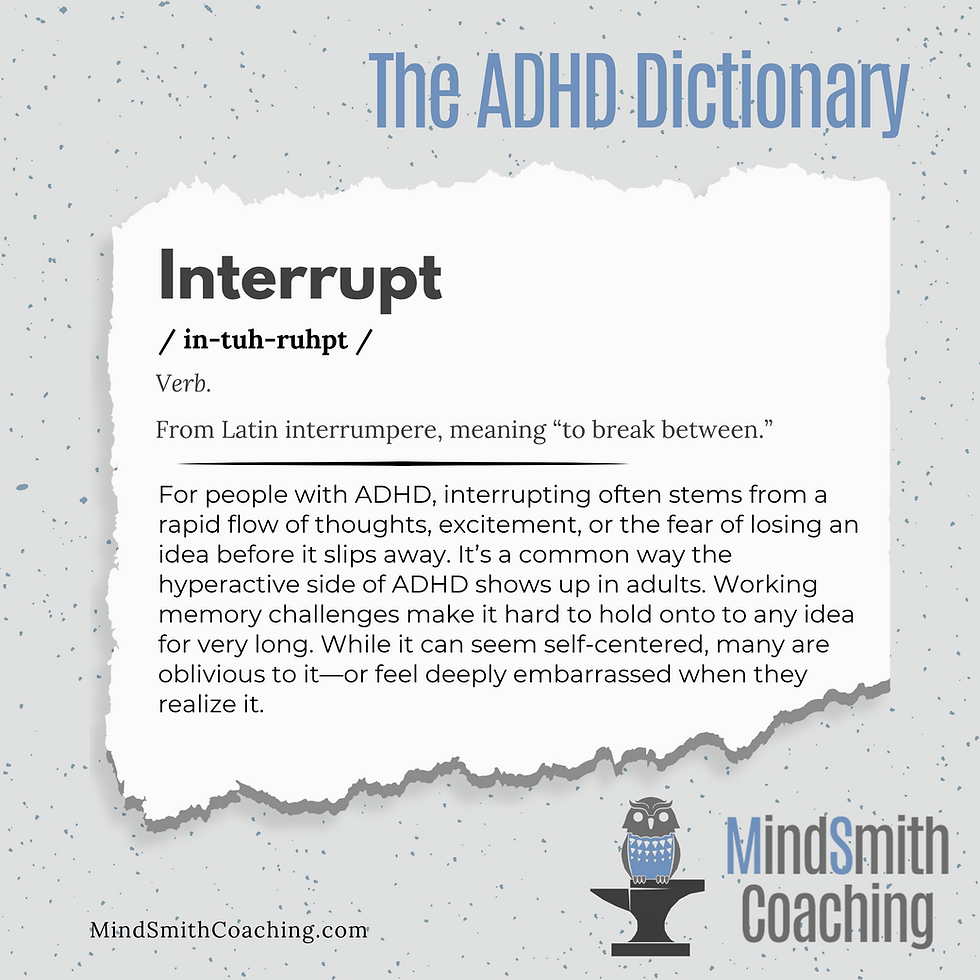The ADHD Dictionary: 7 Terms That Make Everyday Struggles Make Sense
- Bradley Smith II

- Jul 6, 2025
- 2 min read

This is part one of an ongoing series I started for social media—An ADHD Dictionary to redefine words through the eyes of ADHD
The goal is to capture what it's actually like living with ADHD—and how often it's misunderstood. Each entry is meant to be bite-sized: a term, a definition, and a quick real-life angle. I've gathered them here and will update this periodically as I add new entries. The come out first on Instagram so feel free to follow me there!

Have you ever found decision-making overwhelming or mentally exhausting?
It can be easy to avoid a decision when your mind generates too many options.
How do you navigate analysis paralysis?

Has "I forgot" ever meant "I didn't hear it in the first place"?
For me, I rarely register someone's name the first time I meet them because I'm focusing on not being awkward 🙃.
It's also common for dates and specific instructions for many with ADHD. Sound familiar?

ADHD boredom can feel like hitting a wall.
Tasks that don’t spark enough interest can leave you restless and frustrated. Sometimes, small tricks like putting on music, fidgeting, or changing your surroundings can help.
Getting up and walking around and then coming back to a task can help too. Kids do this naturally but then get scolded for it in school.

Ever feel like your brain just won’t let go of something?
One thing that can help is changing your physical environment as a way to make it easier to shift your mental environment.
That can mean going for a walk or just moving to a different room.

Motivation gets misunderstood all the time—especially with ADHD.
It’s not about how much you want to do something. It’s more about whether our brain feels ready to succeed right now.
If you’ve ever been frustrated because you wanted to do something but just couldn’t get started, you’re not alone.
Sometimes finding a spark is about shifting the task, your mindset, or even your environment. Allowing yourself to feel good about just starting something at all can be helpful!

Interrupting can be a tough ADHD habit to navigate. It’s not intentional, but overcorrecting by holding back too much is common too.
One tip: jot down or hold onto just a key word to help you remember what you want to say while staying focused on listening actively.
Most importantly, repair matters more than perfection. Owning it, apologizing, and helping those close to you understand why it happens can go a long way.

ADHD brains crave stimulation, but we often try to ignore that need and tackle tasks the way everyone else does.
Being understimulated doesn’t mean we don’t care about the task—it just makes it harder to engage.
It's better to lean into what our brains need by adding something like music, movement, gamifying, or making the steps smaller.

Comments